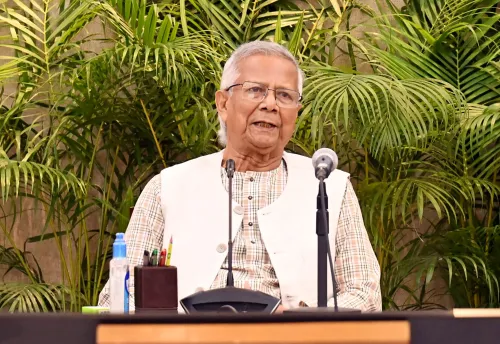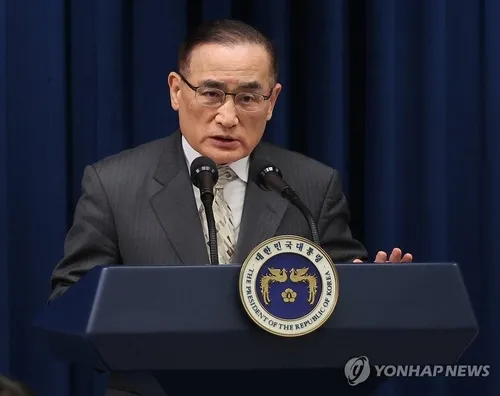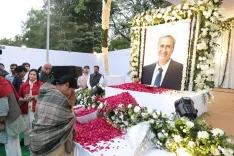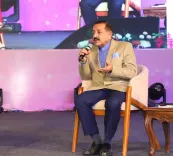What Did the Indian Envoy Discuss with US Congressman?
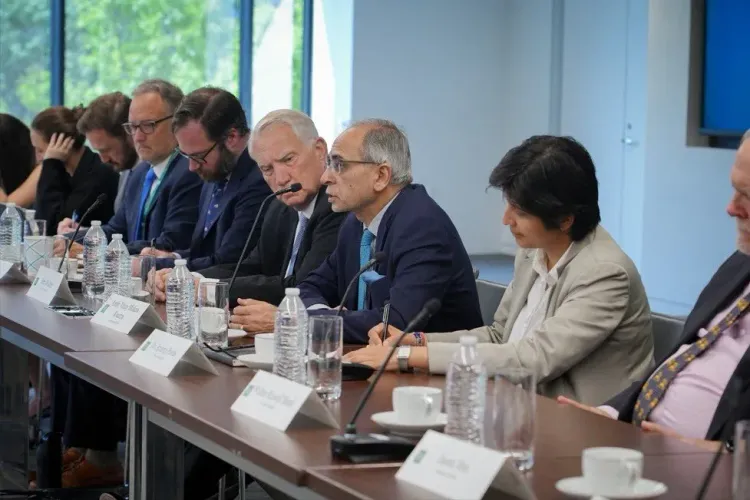
Synopsis
Key Takeaways
- Enhanced bilateral ties are essential for both nations.
- Trade cooperation is a key focus in discussions.
- The growing energy partnership is vital for India's security.
- Diplomatic engagements with Congress members are ongoing.
- Recent tariffs pose challenges to trade relations.
Washington, Sep 5 (NationPress) India's Ambassador to the United States, Vinay Kwatra engaged with US Congressman Rudy Yakym, focusing on bilateral relations, trade collaboration, and the expanding energy partnership between the two countries.
Kwatra conveyed his gratitude for Rudy Yakym's dedication to the India-US partnership.
"Had an insightful discussion with Representative Rudy Yakym regarding India-US bilateral ties. We exchanged views on our trade collaboration and the increasing energy partnership with the US, which is vital for India’s energy security. I appreciated his unwavering support for our relationship," Kwatra shared on X after their early Friday discussions, based on India time.
This meeting is part of a series of interactions with US Congress members from both the Democratic and Republican Parties.
On Thursday, Kwatra also met with Congressman Blake Moore, Vice Chair of the House Republican Conference and Steering Committee, to discuss bilateral trade between the two nations.
Following their meeting, the Indian envoy stated on X, "We exchanged insights on US-India bilateral trade and India's energy trade priorities with Congressman Blake Moore. I expressed gratitude for his steadfast support towards our relationship."
Additionally, Vinay Kwatra met US Representative Mike Kelly, Chairman of the Subcommittee on Taxation, focusing on the India-US bilateral relationship, as well as trade and economic ties. He thanked Kelly for his robust support for India-US ties.
On X, Kwatra wrote, "Had a comprehensive discussion with Representative Mike Kelly, Chairman of the Subcommittee on Taxation, regarding India-US bilateral relations, encompassing our close trade and economic ties. I expressed appreciation for his strong backing of our partnership, highlighting India’s increasing hydrocarbon purchases from the US, which plays a crucial role in meeting India’s energy security needs."
The Indian envoy also connected with US Representative Carol Miller, Chair of the Congressional Energy Export Caucus, to deliberate on India's energy security and trade perspectives. During their conversation, he communicated India's support for all initiatives, including the Alaska Summit held between US President Donald Trump and Russian President Vladimir Putin for resolving the conflict in Ukraine.
"I took this opportunity to brief Representative Carol Miller on India's energy security and trade perspectives, particularly concerning India's hydrocarbon trade with the US. I underlined India's unwavering support for all efforts, including the Alaska Summit, to resolve the conflict in Ukraine through dialogue and diplomacy," Kwatra stated in a post on X.
On Wednesday, Ambassador Kwatra revealed he met with Representative Gregory Meeks, the Ranking Member of the House Foreign Affairs Committee, to discuss India-US ties.
A post on X from the House Foreign Affairs Committee Democrats quoted Representative Meeks as emphasizing Congress' support for the US-India partnership, which has strengthened over the last 25 years, particularly through the Quad.
Meeks also expressed concern over Trump's arbitrary tariffs that jeopardize this vital relationship while reaffirming his commitment to deeper ties.
Ambassador Kwatra mentioned that he briefed Representative Meeks on recent developments in the bilateral relationship, covering trade, energy, the Indo-Pacific, and broader issues of mutual interest.
On August 27, Trump imposed a 50 percent tariff on Indian imports into the US, doubling the initial 25 percent levy as a consequence for India's ongoing purchase of discounted Russian oil amid the Ukraine conflict. In response, the Ministry of External Affairs (MEA) labeled the decision as unfair, unjustified, and unreasonable, emphasizing that India’s energy needs and strategic autonomy should be respected.




